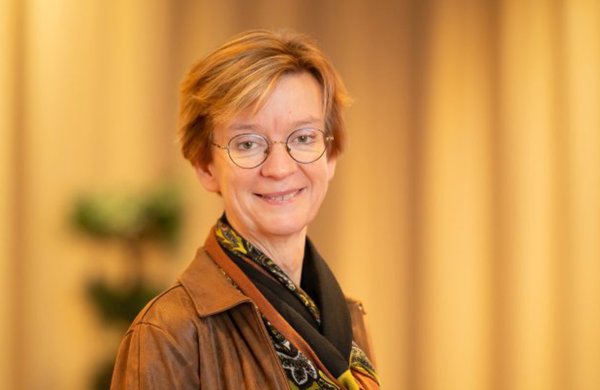
Interview
New rector: ‘As an institution we mustn’t jeopardize our independence’
From her office on the sixth floor of Atlas, her gaze sweeps over the sunlit campus. Her new job demands a new perspective. ‘I can’t fall back on routine anymore; everything is different. I’m leaving scientific practice behind me to some extent.’ The hardest thing about that, explains Kroeze, is saying goodbye to her PhD candidates and students. ‘But luckily, I got to talk to a big group of Bachelor’s students at the opening of the Honours Programme at the end of February. It was nice to talk about science.’
This interview previously appeared in Resource.
This wasn’t a pre-planned career move for the new rector magnificus. ‘I’m not the kind of person who says: at the end of my career I’ll be a rector. I just want to contribute something, in whatever job I do.’ She spent a couple of years on the Academic Board and at the Wageningen graduate schools, and she coordinated the government’s sector plan funds, after which she thought: I don’t want to advise the Executive Board anymore, I want to be the one getting the advice. ‘So as to make decisions.’ Kroeze stresses that she does that with others, and that the decisions concern the world beyond the campus. ‘We are facing an unprecedented global challenge: how can we produce food sustainably on a planet suffering from climate change, biodiversity loss and water shortages? I can’t see that anyone understands these issues better than we do. But we can only tackle the problems together with others. Our slogan “Finding answers together”is one I fully endorse.’
Good listener
After it became known that Kroeze would follow Arthur Mol as rector, Resource went around campus asking people what they thought. Most comments were positive: ‘She’s a good listener’, ‘she is thorough’ and ‘an academic mother figure’. Lovely words, but in this position you sometimes have to do things that mean people don’t think you’re so nice. ‘Of course you also have to be strong and firm. At the Open University I was Vice Dean in a period of cutbacks and a reorganization. I had to make some difficult decisions. If you are transparent, keep listening and stick to your plan, you connect with people and keep them on board.’
Alongside her work as a professor, until recently she worked on two large dossiers: she chaired the advisory committee to the Executive Board on collaboration with fossil fuel companies such as Shell, and she was involved in the Academic Career Framework. This new evaluation system has four cornerstones on which the evaluation of academics should be based: education, research, impact and services. ‘The aim is to make our researchers happier and thus improve our science.’ She doesn’t see it as a problem that she was chair of the advisory committee on collaboration with the fossil industry until shortly before becoming rector. ‘That plan was approved by the Executive Board at that time. Now there is a framework for testing potential partners. And I support it wholeheartedly.’
Independent
Talking of the fossil industry: more and more often, staff and students ask WUR to take a stand on issues such as the war in Palestine or the climate crisis. ‘As a knowledge institute, we work on education, research and value creation. We shouldn’t take positions on political and legal issues. Of course, it’s fine for scientists to make statements based on their knowledge of their field on something like climate change, for example. But as an institution we shouldn’t jeopardize our independence.’
Kroeze has resolved to be visible for staff and students and – in collaboration with them, of course – to make sure WUR keeps its global status at the top among knowledge institutions. ‘We must make a contribution to sustainable food production so there is enough to eat for everyone in the world. The climate is changing, we are facing loss of biodiversity and water shortages, and geopolitical relations are coming under pressure. We will have to stay ahead of the game to keep our leading position. Look at recent political developments in the Netherlands, for example.’